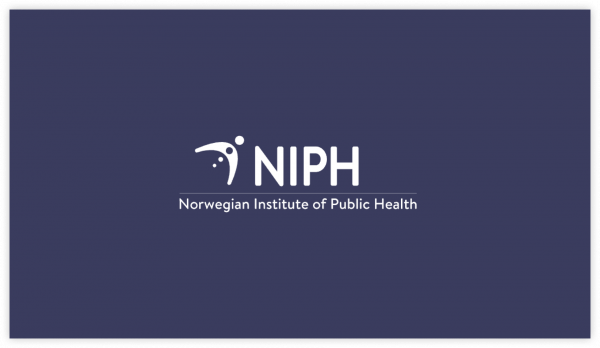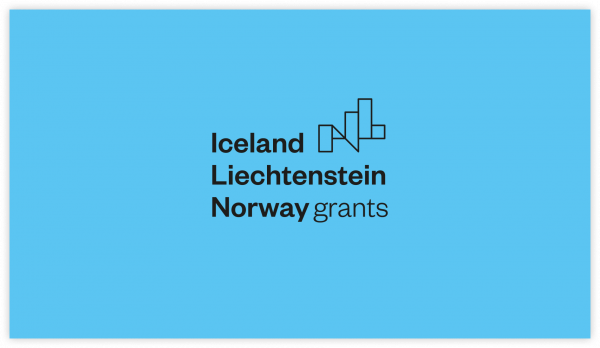Information about the Prevention of Antibiotic Resistance project
The Prevention of Antibiotic Resistance project focuses on the prevention of inappropriate or unnecessary use of antibiotics in the Czech population. It responds to the rise of antibiotic resistance, i.e. the resistance of bacteria to antibiotics, which is mainly caused by the excessive and inappropriate use of antibiotics in human and veterinary medicine. Lack of preventive measures and poor control of infections further contribute to the importance of confronting antibiotic resistance as these factors lead to the spread of resistant microbes in health care facilities and in the general population.
The project Prevention of Antibiotic Resistance (ZD-PDP2-001) was supported by a grant of 67.737 million CZK. The project was funded by the European Economic Area Grants 2014-2021 from the Health Programme. Read more
Target:
Increased consumption and misuse of antibiotics in both human and veterinary medicine is leading to an increase in bacterial resistance. To maintain the effectiveness of antibiotics, they should only be used in justified cases and it is therefore essential that prescribers have up-to-date recommendations for treatment to accurately navigate the indications.
Providing better information for the general public about the rational use of antibiotics and improving the understanding of the consequences of antibiotic misuse can promote the correct prescription of antibiotics. The aim of the project is to enable patients to make informed decisions, which is crucial for reducing consumption. This should be achieved through a media campaign on the effectiveness of antibiotics and the dangers of antibiotic resistance, raising awareness among the general public of the risks associated with inappropriate use of antibiotics and ensuring a sustainable societal approach to the correct use of antibiotics.
However, for doctors to make an accurate decision, they must have available treatment recommendations – a set of guidelines. Therefore, the second part of the project is focused on health care providers – GPs and paediatricians who prescribe antibiotics. The project will develop new Good Antibiotic Use Recommendations which will be made freely available and should lead to improvements in antibiotic prescribing in medical practice
Creating an analysis of information on antibiotic consumption is the main step to ensuring a change in antibiotic prescription behaviour of doctors. Data on antibiotic consumption are collected by health insurance companies and will be available for analysis within this project. With the consent of doctors, With physicians’ consent, statistics on their prescribing will be obtained and subsequently analysed (audited) in relation to the application of the new Treatment Recommendations.
Feedback based on the results of repeated audits of antibiotic use is one of the most important intervention tools used to support correct medication prescription.
Contact details + information about the recipient
Státní zdravotní ústav / National Institute of Public Health
Šrobárova 49/48
Praha 10
100 00
www.szu.cz
IČO 75010330
The State Institute of Public Health (SZÚ) is a contributory organization of the Ministry of Health of the Czech Republic, which provides technical and professional support in the field of public health in basic preventive fields, including hygiene, epidemiology, microbiology and occupational medicine. Its main tasks are to promote and protect health, prevent the spread of diseases and monitor the impact of the environment on the health of the population. The main activities of the SZÚ are science and research, providing professional and methodological advice, assessing the safety of various products, systematic monitoring of environmental impact on the health of the population in the Czech Republic, preparation of legislation in the field of health, undergraduate and postgraduate education of doctors and other health professionals and providing consultations to field professionals. In the area of health promotion and disease prevention, the SZÚ focuses on the most important issues in the field of health care – epidemiological surveillance of serious infections and its related issues (AIDS, hepatitis, antibiotic resistance, healthcare associated infections, new and re-emerging infections) and support a healthy lifestyle.
The State Institute of Public Health has professional experience in the field of antibiotic resistance surveillance, methods of antibiotic resistance detection and molecular epidemiology of antibiotic-resistant bacteria. SZÚ experts are directly involved in the preparation and implementation of the national strategy and action plans to combat antibiotic resistance in humans, as well as in several epidemiological vigilance and research projects. The National Reference Laboratory for Antibiotics (NRL for ATB) has experience in organizing antibiotic resistance surveillance programs both at the national level (Czech Working Group for Resistance Monitoring) and at the international level – EARS-Net (ECDC) and GLASS (WHO). Recently, the SZÚ has also focused on the implementation of infection prevention and control programs in hospitals, at local, national and international levels – European Surveillance HAI-Net (ECDC), and on the training of experts in infection control and hospital hygiene (European basic skills) . SZÚ has many years of experience with EU projects (ABS International, IPSE, TRICE-IS). The Czech representative (Head of the NRL for ATB) is a member of the coordination committee of the European EARS-Net Disease Network.
Partner of the project

Norwegian Institute of Public Health
The Norwegian Institute of Public Health (NIPH) acts as an advisory body under the direct responsibility of the Ministry of Health and Nursing Services. NIPH is responsible for creating databases and systematic overviews in the field of healthcare and provides details on the health status of the population, the risk factors affecting it and on ways to improve it. The institute deals with extensive issues, including the control of infectious diseases. Under Norwegian law, NIPH is responsible for coordinating the prevention and control of infections in healthcare facilities and thus plays a central role in combating antimicrobial resistance. NIPH is also the contact point for European Surveillance of Antibiotic Consumption (ESAC-Net, ECDC), Antimicrobial Resistance (EARS-Net, ECDC) and Healthcare Associated Infections (HAI-Net, ECDC). Together with the Norwegian Directorate for Health, NIPH planned and organized a campaign to raise public awareness of antimicrobial resistance. NIPH has also participated in other campaigns to raise awareness among healthcare professionals about the importance of infection prevention and control. It is leading two sets of work tasks under the European Joint Programming Initiative in the area of antimicrobial resistance and healthcare-related infections.
EEA and Norway Grants

EEA and Norway Grants
The Prevention of Antibiotic Resistance project (ZD-PDP2-001 / 135V123000001) was supported by a grant of CZK 67.737 million from the European Economic Area Grants 2014–2021 from the Health program.
Project name: The Prevention of Antibiotic Resistance
Project number: ZD-PDP2-001/ 135V123000001
Financial mechanism: EEA Grants 2014 – 2021
Aim of the project: Improving the prevention and reduction of health inequalities.
Website of the National Contact Point (under the Ministry of Finance): https://www.eeagrants.cz/
The official website of the EEA and Norway Grants (www.eeagrants.org)

